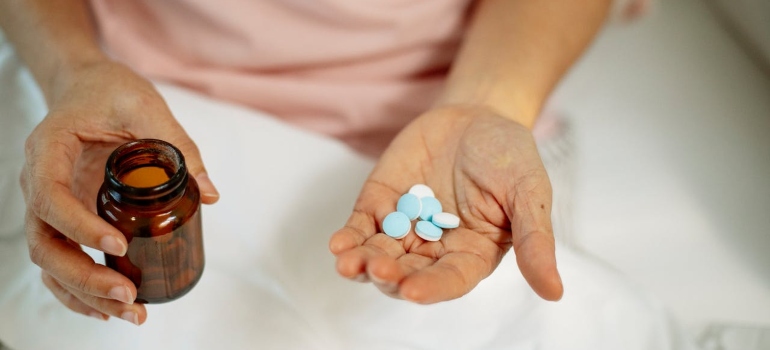Managing mental health often requires a comprehensive treatment plan that may include antipsychotic medications. These medications help stabilize mood, alleviate psychotic symptoms, and improve overall well-being. However, combining antipsychotics with alcohol can introduce serious complications. Understanding the potential dangers of this combination is important for making informed decisions about your health. Harmony Ridge Recovery Center WV emphasizes the importance of safe practices and offers professional support for individuals struggling with mental health and substance misuse.
Understanding Antipsychotics and Their Interaction with Alcohol
Is it okay to drink alcohol while taking antipsychotics? Mixing alcohol with antipsychotic medications is not safe. Both substances affect the central nervous system, which increases the likelihood of harmful side effects. Antipsychotics are designed to restore balance to brain chemicals that regulate mood, perception, and cognition. Alcohol, on the other hand, depresses brain function and interferes with neural signaling. When these opposing effects collide, they create an unpredictable and dangerous reaction in the body.

Key risks of combining alcohol and antipsychotics:
- Increased Sedation: You may feel extreme drowsiness, making it hard to function in daily life.
- Loss of Coordination: Alcohol and antipsychotic medications together impair motor skills, making falls and accidents more likely.
- Heightened Memory Loss: Memory blackouts or forgetting important responsibilities can occur more frequently.
- Worsened Emotional Instability: Alcohol can increase emotional outbursts, leading to heightened anxiety, depression, or anger.
- Delayed Reflexes: Activities like driving become highly dangerous due to slowed response times.
- Organ Stress: The combination puts excess strain on the liver and kidneys, leading to potential long-term damage.
Daily functioning can become difficult, affecting work performance, relationships, and personal safety.
What Happens When You Mix Psych Meds with Alcohol?
Alcohol disrupts the absorption and metabolism of antipsychotic medications. To be effective, antipsychotics need to maintain consistent levels in the bloodstream. Alcohol interferes with this balance, either speeding up or slowing down the breakdown of the medication. This can lead to unpredictable outcomes. Common consequences of combining alcohol with psych meds include:
- Reduced Medication Effectiveness: Antipsychotics may become less effective at controlling symptoms, such as delusions, paranoia, or mood instability.
- Increased Emotional Volatility: Alcohol destabilizes emotions, often causing sudden episodes of extreme anxiety, agitation, or depression.
- Overdose Risk: Alcohol amplifies the sedative effects of antipsychotics, which can slow down vital functions, such as breathing and heart rate. In severe cases, this can lead to unconsciousness, coma, or death.
Physical health is also severely impacted. The liver plays an important role in metabolizing both alcohol and medication. Consuming both substances regularly can lead to liver inflammation and, eventually, chronic liver damage or liver failure. Additionally, alcohol’s dehydrating effects exacerbate common side effects of antipsychotics, such as headaches, dizziness, and nausea.

The mental health repercussions are equally alarming. Rather than achieving emotional stability, individuals who mix alcohol and antipsychotic medications often experience increased distress. Therapy progress from the alcohol rehab center Cambridge OH can be undone, and setbacks become frequent, reinforcing unhealthy coping mechanisms.
Mental Health Risks of Combining Antipsychotics and Alcohol
Can alcohol make psychosis worse? Alcohol’s impact on brain chemistry makes it especially dangerous for individuals prone to psychosis. Alcohol lowers inhibitions and disrupts neurotransmitter activity, which can lead to heightened paranoia, hallucinations, and agitation. For someone managing conditions like schizophrenia or bipolar disorder, these changes can be catastrophic. Approximately 33.7% of individuals with schizophrenia have a lifetime prevalence of alcohol use disorder, highlighting the common co-occurrence of these conditions.
One of the greatest risks is the likelihood of relapse. Someone who has been stable on their medication regimen may suddenly experience a resurgence of severe symptoms after consuming alcohol. This can result in the need for hospitalization, changes to medication, and an increased dependence on professional support.
Alcohol’s effect on sleep patterns further compounds the issue. Both alcohol and antipsychotics disrupt sleep, but alcohol specifically interferes with REM sleep, the stage responsible for emotional processing and memory consolidation. Individuals who experience chronic sleep disturbances are at a higher risk of experiencing psychotic episodes.
The longer alcohol is used alongside antipsychotics, the more difficult recovery becomes. The cycle of sleeplessness, emotional instability, and psychotic symptoms creates a reinforcing loop that can make even basic daily tasks seem insurmountable.

Long-Term Consequences of Mixing Alcohol and Psych Meds
The long-term combination of alcohol and antipsychotic medications has both physical and mental repercussions. This destructive combination not only strains vital organs but can also lead to chronic health conditions, such as high blood pressure and digestive issues. Furthermore, individuals often experience prolonged cognitive decline, making it difficult to retain information or manage daily tasks.
Mental Health Consequences
- Dependence and Addiction: The temporary relief alcohol provides can create dependency, making it difficult to stop drinking without experiencing withdrawal symptoms.
- Cognitive Decline: Chronic alcohol misuse combined with antipsychotic use can lead to long-term memory issues, difficulty concentrating, and impaired decision-making.
- Increased Risk of Depression and Anxiety: Over time, alcohol’s depressive effects on the brain can worsen underlying mental health conditions.
Physical Health Consequences
- Liver Damage: The liver is especially vulnerable to damage from alcohol and medication overload, leading to inflammation, fibrosis, or cirrhosis.
- Cardiovascular Issues: Chronic alcohol use can increase blood pressure and weaken the heart, contributing to long-term cardiovascular disease.
- Neuropathy: Prolonged alcohol use can lead to nerve damage, resulting in numbness, pain, and mobility challenges.
In addition to these effects, the social consequences of substance misuse cannot be overlooked. Individuals may lose jobs, struggle to maintain relationships, and face financial instability. Job loss can lead to housing insecurity, making it difficult to maintain a stable living environment, which further worsens emotional stress. Relationships with family and friends often deteriorate due to mistrust, communication breakdowns, or recurring conflicts related to substance use. Financial instability can also result in mounting debt, creating a sense of helplessness. The burden of these losses often deepens feelings of guilt and shame, which can further fuel substance misuse. Over time, this isolation can lead to social withdrawal, leaving individuals feeling abandoned and reinforcing the dangerous cycle of addiction.
Seeking Help for Antipsychotic and Alcohol Misuse
Seeking help for the challenges of antipsychotic and alcohol misuse is an important step toward recovery and long-term wellness. Many individuals feel overwhelmed by the complexities of managing both mental health conditions and substance misuse, but professional treatment provides a clear path forward. Comprehensive care programs address not only the physical and psychological effects of misuse but also the underlying emotional and social factors contributing to it. By seeking professional support, individuals can gain access to personalized treatment plans, evidence-based therapies, and supportive communities that foster healing and resilience. Recovery is not just about quitting alcohol or stabilizing symptoms—it’s about rebuilding a balanced, fulfilling life with the right tools and guidance.

Benefits of Addiction Treatment Centers in West Virginia
Addiction treatment centers in West Virginia offer comprehensive programs that address both mental health disorders and substance use. Moreover, dual diagnosis treatment West Virginia programs are specifically designed to treat individuals with co-occurring disorders, ensuring that both the mental health condition and the addiction are managed together. Programs typically include:
- Evidence-Based Therapies: Cognitive-behavioral therapy (CBT), group counseling, and individual therapy for addiction help individuals build coping skills and develop healthier thought patterns.
- One-on-One Counseling: Personalized sessions provide a safe space to discuss underlying trauma, triggers, and goals.
- Holistic Therapies: Art therapy rehabilitation, mindfulness practices, and fitness programs are often incorporated to support emotional healing and overall well-being.
- Medical Support: Detox programs, such as those offering medication assisted treatment in West Virginia, help individuals safely manage withdrawal symptoms and reduce the risk of relapse.
Moreover, Blue Cross Blue Shield drug rehab coverage can make these services more accessible by covering essential aspects of treatment, such as therapy sessions and medication. This financial support can ease the burden of treatment costs, allowing individuals to focus on their recovery without the added stress of medical expenses. Additionally, comprehensive coverage often includes access to follow-up care and outpatient programs, ensuring continued support even after the initial stages of recovery.
Steps to Recovery and Long-Term Support
Successful recovery involves several key stages:
- Detoxification: The first step is to cleanse the body of alcohol while managing withdrawal symptoms under medical supervision.
- Therapy and Counseling: Structured programs, such as an intensive outpatient program in West Virginia, offer consistent therapy sessions and support while allowing individuals to maintain some independence.
- Coping Strategies: Rational Emotive Behavior Therapy (REBT for addiction) helps individuals recognize irrational beliefs and develop healthier responses to stress and triggers.
- Alternative Therapies in Addiction Treatment: Complementary methods, such as yoga, animal-assisted therapy, and meditation, promote relaxation and emotional regulation.
- Family Support: Involving family members in the recovery process through family counseling can improve communication and rebuild trust.
- Peer Support Groups: Connecting with others who share similar experiences fosters a sense of belonging and accountability.
Aftercare programs often provide access to job training, continued therapy, and support groups to help individuals transition back into everyday life. These services equip individuals with practical skills and emotional support, making it easier to rebuild their independence and regain confidence. By fostering a sense of purpose and belonging, aftercare programs help individuals stay motivated and connected to their recovery goals, reducing the likelihood of relapse.

The Impact of Social Stigma on Recovery
One of the most significant barriers to seeking help for mental health and substance misuse is the stigma surrounding these issues. Individuals struggling with antipsychotic and alcohol misuse often face judgment from their peers, colleagues, and even family members. This fear of being labeled or misunderstood can delay their willingness to seek professional treatment. How stigma affects recovery:
- Internalized Shame: Many individuals internalize the negative views society holds about substance use, leading to feelings of unworthiness and hopelessness.
- Avoidance of Support: Fear of judgment may prevent individuals from attending support groups, therapy, or rehab programs.
- Impact on Employment: Job insecurity and workplace stigma can make individuals hesitant to disclose their need for treatment, delaying their recovery.
Efforts to address stigma must include public education that normalizes mental health treatment and celebrates recovery stories. Recovery-friendly workplaces and communities can also create safe environments for individuals to integrate back into their daily lives without fear of being judged or marginalized.
Preventing Relapse and Building Resilience
Preventing relapse requires a proactive, long-term plan that supports individuals well beyond the initial phases of recovery. Key strategies for building resilience:
- Structured Routines: Establishing a consistent daily schedule provides a sense of normalcy and reduces the likelihood of impulsive behaviors.
- Accountability Networks: Regular check-ins with mentors, sponsors, or therapists help reinforce positive habits.
- Mindfulness Practices: Techniques such as meditation, journaling, and breathing exercises enhance emotional regulation and self-awareness.
- Continued Therapy: Ongoing counseling addresses new challenges and helps individuals refine their coping mechanisms.
- Community Engagement: Staying involved in support groups and local events creates a sense of belonging and reduces isolation.

Programs that offer relapse prevention plans, personalized therapy, and peer-led support groups play an important role in long-term recovery. Building resilience is not about avoiding challenges altogether but developing the strength and skills needed to handle setbacks constructively.
Antipsychotics and Alcohol: Choosing Recovery Over Risk
Combining antipsychotic drugs and alcohol can lead to dangerous outcomes, affecting both mental and physical health. Awareness of the risks and seeking appropriate help can prevent setbacks and promote long-term wellness. Professional treatment programs, like those offered at Harmony Ridge Recovery Center WV, provide individuals with the tools and resources needed to overcome the challenges of dual diagnosis and achieve a balanced, fulfilling life. Recovery is a journey that requires strength, support, and perseverance, but it also offers the opportunity to rediscover hope and rebuild meaningful connections. With the right guidance and a commitment to healing, individuals can reclaim their independence and create a future defined by resilience, not relapse. Remember, every step forward, no matter how small, is progress toward a healthier and happier life.
Reference:
https://www.psychiatrist.com/wp-content/uploads/2021/02/17511_schizophrenia-comorbid-substance-disorder-effects.pdf
Frequently Asked Questions
Is it safe to drink alcohol while taking antipsychotics?
No. Alcohol increases side effects and interferes with how antipsychotic medications work, raising risks like sedation, coordination problems, and symptom relapse.
Can alcohol worsen psychosis or mental health symptoms?
Yes. Alcohol can intensify hallucinations, paranoia, mood instability, and sleep disruption, which increases the likelihood of symptom relapse.
Why does alcohol interfere with antipsychotic medications?
Alcohol alters how medications are absorbed and metabolized, causing unstable drug levels that reduce effectiveness and increase harmful side effects.



